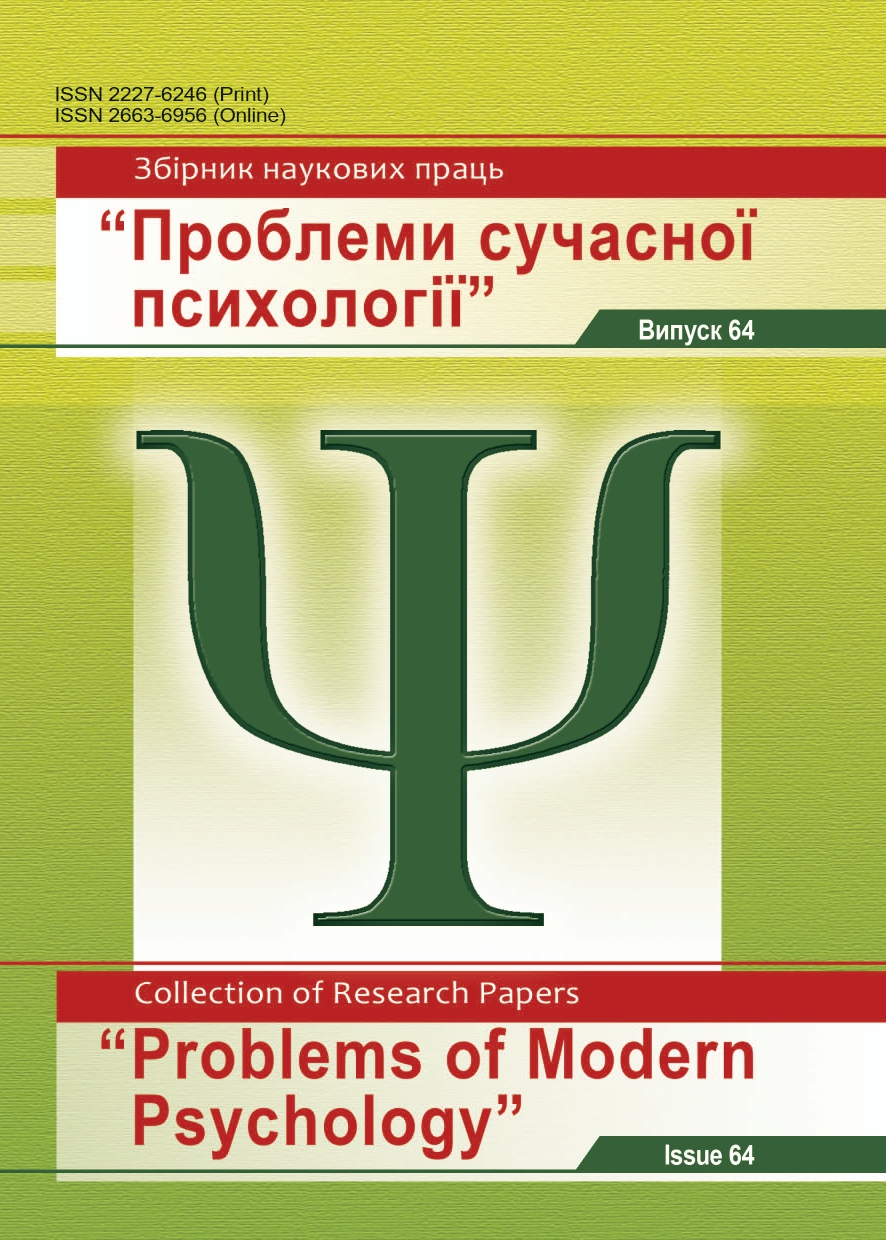Psychological Mechanisms of the Emergence, Development, and Establishment of Civic Identity
DOI:
https://doi.org/10.32626/2227-6246.2024-64.225-249Keywords:
identity, psychological mechanism, descriptor, narrative, imitation, interaction, comprehension, citizenship, stereotypes, attitudesAbstract
The aim of the article is to empirically reveal the regularities of the manifestation of the psychological mechanisms of civic identity formation.
Methods. A retrospective narrative “I am in the State” and thematic analysis, which intended for processing the verbal content of narratives were used to identify descriptors of the psychological mechanisms of civic identity formation. 205 citizens of Ukraine aged 16 to 60 (62% women and 38% men) took part in the research.
The results of the research. According to the results of the study, the following averaged percentage distribution of psychological mechanisms descriptors of civic identity formation was obtained: internalization of civic content (25%), imitation of civic behavior models (23%), individualization of the content of citizenship (19%), exteriorization of stereotypes, attitudes, and patterns of civic behavior (15%), implementation of the experience of interaction with the state and fellow citizens (10%), comprehension of one’s own citizenship (8%).
Conclusions. Descriptors of all psychological mechanisms of civic identity formation (emergence, development, and establishment) are sufficiently represented in the retrospective narrative texts of the respondents. However, the uneven «involvement» of these psychological mechanisms in the process of forming a person’s civic identity was revealed. The internalization of civic content, imitation of civic behavior models, and individualization of the content of citizenship can be counted among the most universal mechanisms of civic identity formation. Less universal but quite common is the mechanism of exteriorization of stereotypes, attitudes, and patterns of civic behavior. Mechanisms of implementation of individual experience of interaction with the state and fellow citizens and comprehension of one’s own citizenship turned out to be more specific and less widespread. Insufficient engagement of these mechanisms can lead to the formation of a deficient or deformed civic identity.
Downloads
Published
How to Cite
Issue
Section
License
Copyright (c) 2024 Petrovska Inha

This work is licensed under a Creative Commons Attribution-NonCommercial 4.0 International License.
Copyright
The Editorial Board has the full right to publish original scientific papers containing results of theoretical and experimental research works which are not currently subject to review for publication in other scientific editions. The Author shall transfer to the editorial board of the Collection the right to spread the electronic version of the paper, as well as the electronic version of the paper translated into English (for papers originally submitted in Ukrainian and Russian) by all kinds of electronic means (placement at the official website of the Collection, electronic databases, repositories etc).
The Author of an article reserves the right to use materials of the paper, without approval with the editorial board and the founders of this Collection: a) partially or fully, for educational purposes; b) for writing own dissertation papers; c) for preparation of abstracts, conference reports and presentations.
The Author of an article can place electronic copies of the paper (including the final electronic version downloaded from the official website of the Collection) at:
- personal web resources of all Authors (websites, webpages, blogs etc.);
- web resources of the institutions where the Authors are employed (including electronic institutional repositories);
- non-profit public access web resources (for example, arXiv.org).
But in all cases, it is obligatory to have a bibliographic reference to the paper, or a hyperlink to its electronic copy placed at the official website of this Collection.






